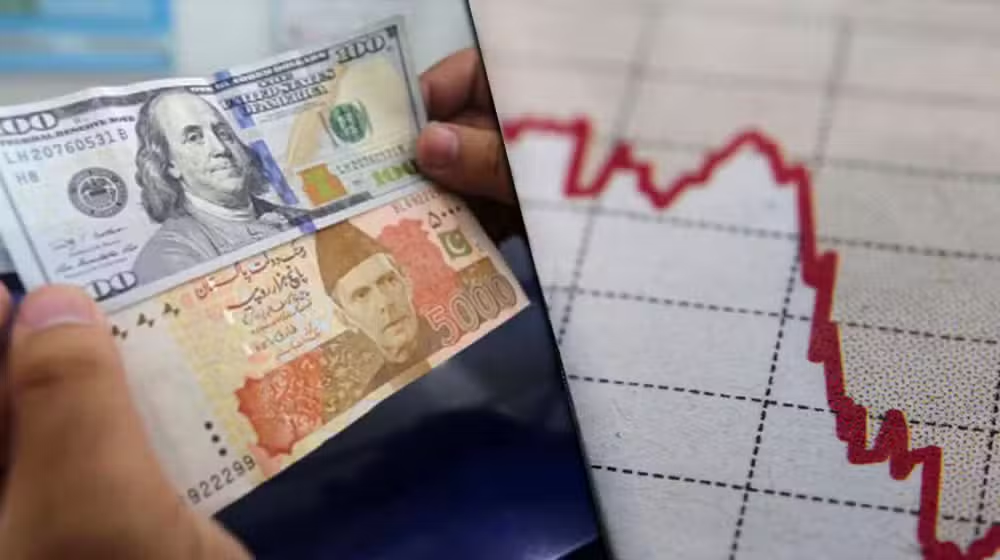KARACHI: In response to the escalating hostilities with India, the State Bank of Pakistan (SBP) has issued instructions to commercial banks to closely monitor all foreign currency outflows, particularly transactions involving US dollars.
The move reflects precautionary measures to manage any potential surge in demand for foreign currency due to regional instability.
Despite these directives, currency dealers in both interbank and open markets reported no signs of panic or a noticeable spike in dollar demand.
According to market participants, trading conditions remained largely stable, and there was no significant public rush to purchase foreign currency.
One senior currency dealer, speaking anonymously, pointed out a potential vulnerability in Pakistan’s remittance system.
He explained that a significant proportion—over 90%—of remittances are funneled through Indian-operated exchange firms, especially in the Middle East.
These companies, which maintain extensive networks in the Gulf, Europe, and North America, serve as key intermediaries by collecting local currencies from overseas Pakistanis and transmitting US dollars to Pakistan via formal banking channels.
“These exchange companies play a crucial role in maintaining remittance flows, but if geopolitical tensions persist or escalate into a wider conflict, India could potentially leverage them as a pressure tool,” the dealer noted.
The SBP currently offers these entities a dollar-based incentive of Rs15 to Rs20 per US dollar sent through formal channels.
Given the scale and reliance on this network, any disruptions could seriously impact remittance inflows, which are a major pillar of Pakistan’s foreign exchange reserves.
Higher Stakes
Rashid Masood Alam, a senior banking executive, warned that while Pakistan has previously weathered cross-border skirmishes, the stakes this time are considerably higher.
“A drawn-out conflict could deliver a critical blow to Pakistan’s already strained economy. India, too, would face substantial economic fallout in such a scenario,” he said.
A top banker, who also preferred to remain unnamed, confirmed that informal guidance had been received from the central bank regarding enhanced vigilance on dollar movements.
“It’s more about being cautious and ensuring that speculative or destabilizing activity doesn’t catch us off guard,” he said.
Market participants widely acknowledged that while tensions are high, financial markets have so far remained composed.
General Secretary of the Exchange Companies Association of Pakistan, Zaffar Paracha, said, “There’s been no run on the dollar, nor any hoarding or unusual buying activity in the open market.”
He assured that the existing forex reserves and market liquidity were sufficient to handle temporary shocks.
“Should a shortage emerge, it can be managed. But an extended conflict would strain both Pakistan and India economically,” he cautioned.
Prolonged War
There appears to be broad consensus across the financial sector that a prolonged full-scale war remains unlikely, given the mutual economic risks involved.
Read More: Dollar Outflow Up 112% in FY2024-25
However, some ripple effects from the conflict were visible in the markets on the day following India’s airstrikes.
“Initially, the market reacted nervously, but calm returned quickly,” said the CEO of financial analytics platform Tresmark.
“The Pakistani rupee and Indian rupee remained largely stable. Swap premiums did rise modestly, reflecting a mild risk premium.”
He added that while Pakistan’s sovereign bond yields saw a slight uptick during intraday trading, they eventually settled back to earlier levels.
“Investors seem to believe the situation will not spiral further. If military escalation stops here, the long-term economic implications should remain limited.”
Also Read: SBP Directs Banks to Closely Monitor Dollar Outflows
Overall, the financial leadership has adopted a cautious but measured approach, with institutions continuing to monitor developments closely and prepare for any potential disruptions.
The central bank’s vigilance and market stability measures reflect an effort to maintain confidence and resilience in Pakistan’s financial system amid heightened geopolitical risks.









